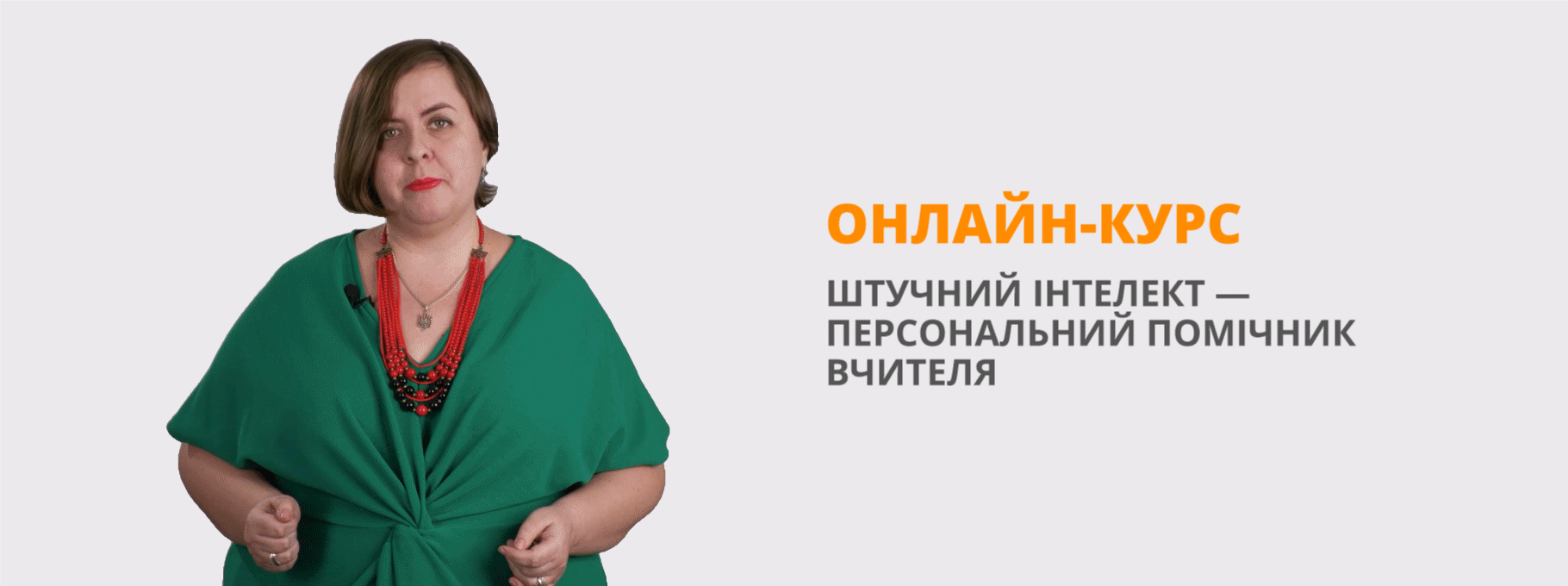Урок з англійської мови для 11 класу на тему: «English-speaking World»
Урок
англійської мови у 11 класі
на тему
“ENGLISH-SPEAKING WORLD“
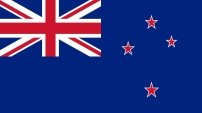
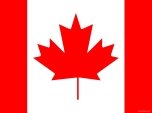
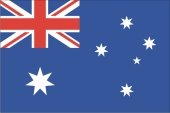
Учитель англійської мови
Наумівської ЗОШ І-ІІІ ступенів
Костюк Л.Л.
Theme: English-Speaking World.
Objectives: to develop speaking, listening, grammar skills ( to practise using Complex Object ), to develop skills of working in a team and in pairs; to develop pupils’ creative abilities, to raise motivation, to broaden knowledge about English-speaking countries, to teach pupils to present information,
Equipment: pictures of national symbols of Canada, Australia, New Zealand, grammar handout, cards with dialogues, computer presentations, recording and a tape-recorder, a computer.
Procedure.
- Introduction:
Aim
T. Today we are going to have an unusual lesson, because we have some guests at our lesson and we are going to see very interesting presentations, prepared by your classmates. The theme of our lesson is “ English-Speaking World” and we are to sum up the material about three English-speaking countries: Canada, Australia and New Zealand. By the end of the lesson you will learn a lot of new interesting information about these countries.
But it will be a bit later and now let’s begin with some questions about your life.
Warming up
T. You are 11th formers and this year is very important in your life, isn’t it? Why? What do you feel thinking about it?
P1. We are going to have final exams. And I worry about it.
P2. We have to choose our future career. As for me I am still hesitating.
P3.We have to prepare well for independent testing. It’s not easy.
P4. It is our last year at our school and I feel very sad.
P5. We should work hard to enter some higher educational establishment. It’s challenging.
P6….
- Main Part
1.Practising Grammar
T. I think that you often speak with your parents, teachers and friends about all these things concerning your leaving school and your future choice. Answer the following questions according to the model, using Complex Object.
HO1
Complex Object
My parents want me
Our teachers expect them to V
I ask us
My friend would like
(P1P2P3P4…)
- What do your parents want you to be?
- What do your parents ask you to do?
- What do your parents expect you not to do?
- What kind of person would your parents like you to be?
- What do your teachers want you to do (not to do)?
- What do you want your parents to do?
- What do you ask your parents to do?
- What would you like your parents to be?
(Expected answers: to be a doctor; to work hard at my school subjects; not to play computer games long; not to be lazy; to be a kind, honest person; to be attentive at the lessons; not to smoke; to understand me; to help me in some difficult life situations; …etc.)
T. As for me, I would like you to be active and attentive today at the lesson. I ask you to do your best and to show your good knowledge. I expect our lesson to be interesting and useful.
2. Brainstorming
T. On the blackboard you can see the national symbols of three countries. Which countries do they belong to? ( Pupils answer: Canada, Australia, New Zealand)
T. What are the most memorable or unusual facts or things which come to you mind when you hear the names of these three countries?
Canada Australia
- maple leaf; - kangaroo, koala;
- beaver; - Sydney Opera House;
- Ukrainian Diaspora; - summer in January
- Olympic Games of 2010;
New Zealand
- Maori people;
- Films “Xena”, “King Kong”;
- Captain Cook.
3. Presentations
T. And now let’s see and listen to the pupils’ presentations. Be ready to answer some questions after each presentation.
( Pupils present their group projects. See Supplementary Materials)
Group1: project “Canada”
Questions:
- What is the largest city of Canada?
- Where is the largest Ukrainian diaspora in Canada?
- What are the official languages of Canada?
- What is the national sport game in Canada?
Group2: project ”Welcome to Australia”
Questions:
- Who were the first Europeans to come to Australia?
- What is the capital of Australia?
- What Australian animals cannot be found anywhere else in the world?
- When is the National Day of Australia?
Group 3: project “New Zealand” (see the appendixes).
Questions:
- Who are the native people of NZ?
- Whom was New Zealand discovered by?
- Who is the head of the state in New Zealand?
4. Listening
T. Now you will listen to a dialogue and while listening try to find answers to such questions:
1. Who is speaking?
2. What English-speaking country are they speaking about?
3. What facts about this country do they mention?
WHAT DO WE KNOW ABOUT AUSTRALIA?
Alex: Have you had a nice evening?
Boris: Yes. I’ve been watching a documentary film on TV.
Alex: Really? What was it about?
Boris: About the largest island in the world.
Alex: The largest island? Do you mean Australia?
Boris: I do. Though I’m sure that Australia is the biggest island I know that many people think it’s a continent.
Alex: Yes. That’s what I think: it’s the smallest continent on the earth.
Boris: And it is an independent country too.
Alex: I know that. What is its capital? Sydney?
Boris: No. It’s Canberra. But Sydney is the largest city in the country.
Alex: Is English the official language?
Boris: Yes, it is, though it is a bit different from the language they speak in the USA and Britain.
T. Listen to the dialogue once more and be ready to read it in pairs in the same manner.
5. Reading.
( Pupils listen to the dialogue and act it out)
III. Summarizing
T. You have worked well today. I hope you liked today’s lesson and you have learned a lot of interesting things. I expected you to be smart today, to show your best knowledge. And you did it! Your marks …
IV. Homework.
Your homework is to make your own dialogues about New Zealand or Canada.
The Appendixes.
Project “New Zealand”
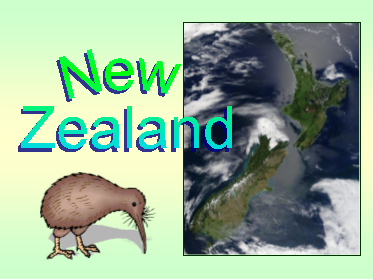
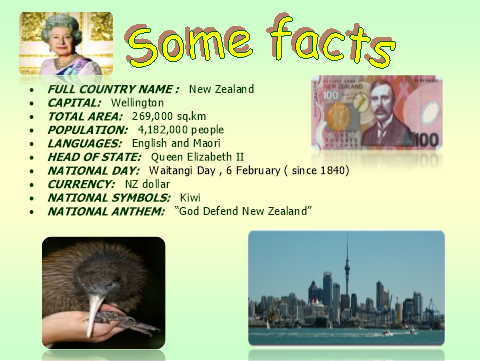
![new-zealand-map[1]](/uploads/files/604042/146524/158834_html/images/146524.006.png)
New Zealand is a country in the south-western Pacific Ocean comprising two large islands – the North Island and the South Island.
The west coast is washed by the Tasman Sea, the other coast of the country - the Pacific Ocean. North and South Islands are separated by the Cook Strait.
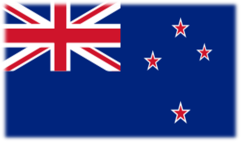
The New Zealand flag has its background and crosses as on the British flag.
In the top right-hand corner we can see the stars of the Southern Cross in red on a blue field.
Until 1911, New Zealand used the same national coat of arms as the United Kingdom.
The shield is supported by two figures, a blonde Pākehā (European) woman holding the New Zealand flag and a Māori warrior holding a taiaha (Māori staff).
![Coat_of_arms_of_New_Zealand[1]](/uploads/files/604042/146524/158834_html/images/146524.008.png)
![New_Zealand_Coat_of_Arms_old[1]](/uploads/files/604042/146524/158834_html/images/146524.009.png)
The kiwi bird was named so for the sound of its chirp. This flightless bird, about the size of a domestic hen, has plumage more like hair than feathers.
The New Zealand dollar is frequently called the Kiwi. The dollar coin features a kiwi bird on one side
![kivi_g[1]](/uploads/files/604042/146524/158834_html/images/146524.010.jpg)
![Abeltasman1903[1]](/uploads/files/604042/146524/158834_html/images/146524.011.png)
The first Europeans known to have reached New Zealand were Dutch explorer Abel Janssen Tasman and his crew in 1642.
![Captainjamescookportrait[1]](/uploads/files/604042/146524/158834_html/images/146524.012.png) No Europeans returned to New Zealand until British explorer James Cook's voyage of 1768.
No Europeans returned to New Zealand until British explorer James Cook's voyage of 1768.
![Queen_Elizabeth_II_of_New_Zealand_cropped[1]](/uploads/files/604042/146524/158834_html/images/146524.013.jpg) New Zealand is a constitutional monarchy with a parliamentary democracy. Under the Royal Titles Act (1953), Queen Elizabeth II is Queen of New Zealand .
New Zealand is a constitutional monarchy with a parliamentary democracy. Under the Royal Titles Act (1953), Queen Elizabeth II is Queen of New Zealand .
New Zealand is the only country in the world in which all the highest offices in the land have been occupied simultaneously by women.
The Maori are natives of New Zealand. They lived in tribes called ‘iwi’. The present Maori population has increased to about 250,000 and the Maori live in all parts of New Zealand.
![Te_Puni_Maori_Chief[1]](/uploads/files/604042/146524/158834_html/images/146524.014.jpg)
![maori[2]](/uploads/files/604042/146524/158834_html/images/146524.015.jpg)
![501px-SIF-Beehive-3-Cropped[1]](/uploads/files/604042/146524/158834_html/images/146524.016.jpg)
![chancery[1]](/uploads/files/604042/146524/158834_html/images/146524.017.jpg)
Wellington is the capital of New Zealand. It is New Zealand's political centre, housing Parliament.
Auckland is the largest urban area of the country. With over 1,260,900 people it has over a quarter of the country's population.
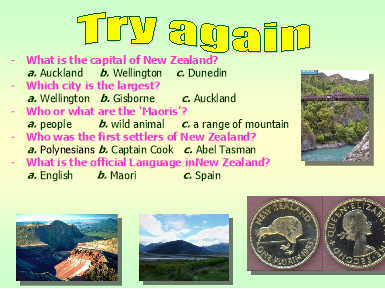
1

про публікацію авторської розробки
Додати розробку
